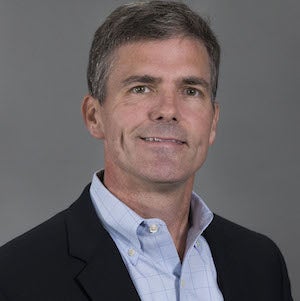Many political leaders who support the U.S. House of Representatives version of a new healthcare bill proudly identify themselves as Christian, pro-life and pro-family. What puzzles me is how these leaders reconcile their personal values and commitments with embracing a plan that limits or excludes poor people as well as persons with pre-existing conditions. In other words, how is this plan pro-life, pro-family, and consistent with their Christian beliefs and practices?
In fact, this plan is an affront to Jesus because it excludes the most vulnerable people from coverage. Jesus did not waver in the priority he gave to those who were poor, hungry, sick, imprisoned, or a stranger. There is ample biblical evidence for making this claim. Consider just one example, Jesus’ words about God’s judgment of nations in his parable of the sheep and the goats. Jesus says those who do not feed the hungry, provide for the poor, refuse hospitality to the stranger, and care for the sick fail to be faithful to his example and to God’s expectations (Matthew 25:34-46).
The current proposal from the House to repeal and replace the Affordable Care Act, or Obamacare, complicates coverage for the poor and especially for those with pre-existing conditions. It does so by opening the door to unaffordable premiums tied to placement in high risk insurance pools. I do not claim expertise with regard to the best system to replace Obamacare, though a single-payer system makes the most sense, and tying health insurance so tightly to employment seems outdated as well as misguided. Those who can afford private insurance, the best option, could opt out of the single-payer plan; but all people would have access to adequate healthcare if not to the better quality, “Cadillac” model. Such an approach would align with those of most European countries and Canada but also would concur with Jesus’ values.
Until we shift to a mindset that recognizes healthcare as a fundamental human right, and accordingly provide stable universal coverage, we will fail as a nation. Thoughtful people may disagree on how best to offer this coverage, but any healthcare plan that reflects Jesus’ values and example must include affordable coverage for all people, including those who are poor, already sick, and those who may be unemployed or lose their jobs. Anything less would be inhumane, unworthy of American ideals, and at odds with what Jesus advocated.
I anticipate the response that providing healthcare to everyone is too expensive, that we don’t have the resources for universal coverage even if we agreed on its virtues. I would respond by noting that this objection raises a question that has less to do with available resources and more to do with priorities for those resources. Jesus said “Whoever has two coats must share with anyone who has none; and whoever has food must do likewise” (Luke 3:22). And let us not forget the well-known “Golden Rule” that Jesus commanded his followers to embrace: “In everything do unto others as you would have them do to you” Matthew 7:12. Wouldn’t Jesus extend his ethic to the poor and sick in need of healthcare?
Our elected officials who say they follow Jesus have the opportunity to demonstrate their allegiance to his life and teachings. They can practice what they preach. They can embrace core values of their faith: care for the sick, the poor, and the stranger—values that Jesus embodied, championed, and died for—as they do their noble work. Failure to do so not only points to a lack of their faithfulness, it screams hypocrisy.
And besides, it’s better to live in a country where everyone can drive a Ford, Chevy, or Dodge, than to live in a country where some can drive a Cadillac while others must walk. I think Jesus would agree.
__
Allan Hugh Cole Jr. is a professor, senior associate dean for academic affairs, and director of undergraduate programs in the School of Social Work at The University of Texas at Austin. This opinion piece was produced for Texas Perspectives and represents the views of the author, not of The University of Texas at Austin or the Steve Hicks School of Social Work. Versions it appeared in USA Today and the East Bay Times.


